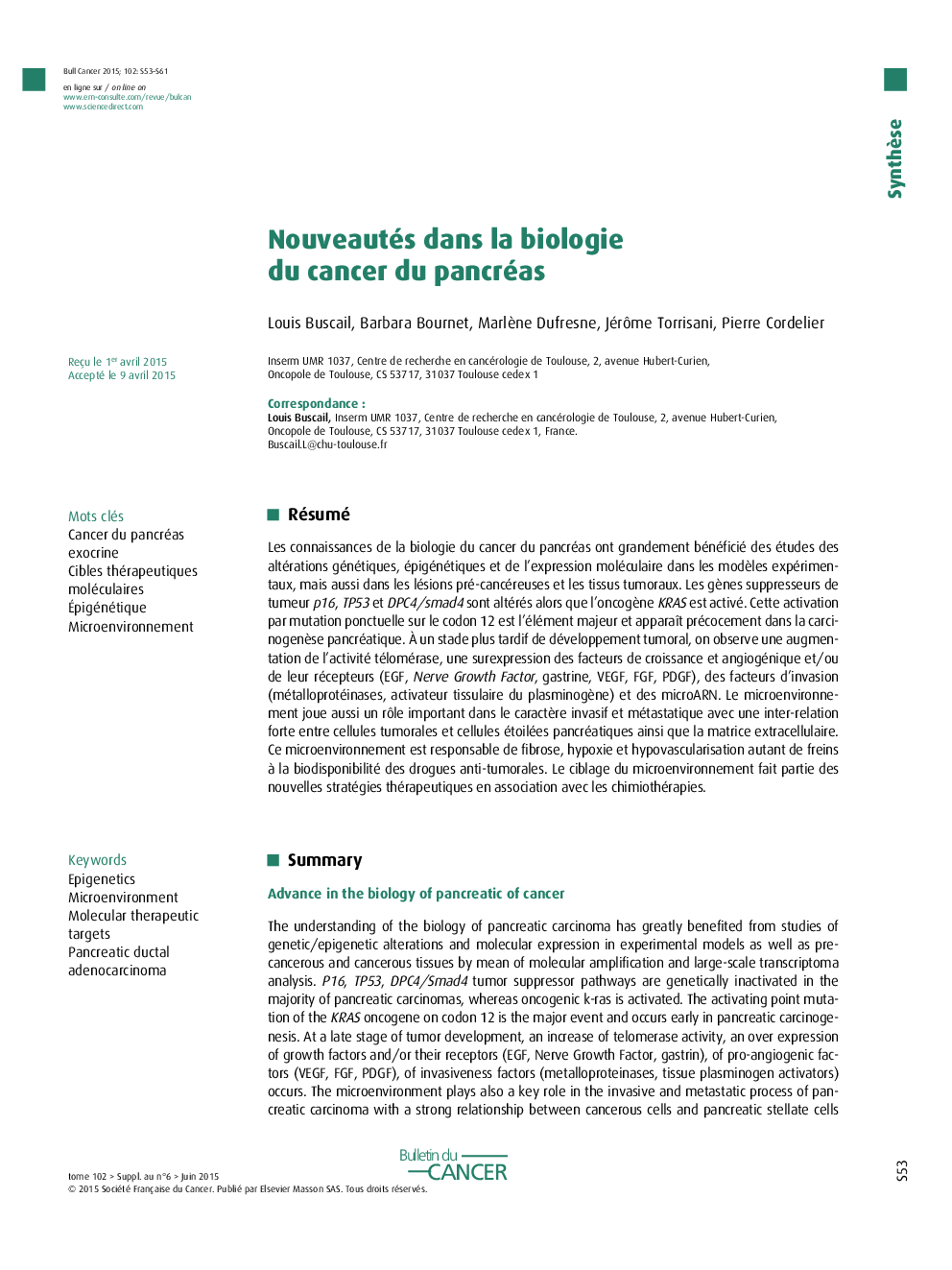| Article ID | Journal | Published Year | Pages | File Type |
|---|---|---|---|---|
| 3978371 | Bulletin du Cancer | 2015 | 9 Pages |
Abstract
The understanding of the biology of pancreatic carcinoma has greatly benefited from studies of genetic/epigenetic alterations and molecular expression in experimental models as well as precancerous and cancerous tissues by mean of molecular amplification and large-scale transcriptoma analysis. P16, TP53, DPC4/Smad4 tumor suppressor pathways are genetically inactivated in the majority of pancreatic carcinomas, whereas oncogenic k-ras is activated. The activating point mutation of the KRAS oncogene on codon 12 is the major event and occurs early in pancreatic carcinogenesis. At a late stage of tumor development, an increase of telomerase activity, an over expression of growth factors and/or their receptors (EGF, Nerve Growth Factor, gastrin), of pro-angiogenic factors (VEGF, FGF, PDGF), of invasiveness factors (metalloproteinases, tissue plasminogen activators) occurs. The microenvironment plays also a key role in the invasive and metastatic process of pancreatic carcinoma with a strong relationship between cancerous cells and pancreatic stellate cells as well as extracellular matrix. This microenvironment strongly participates to the tumor fibrosis, hypoxia and hypovascularization inducing an inaccessibility of drugs. Nowadays, the targeting of microenvironment takes a special place in the new therapeutic strategies of pancreatic cancer in combination with chemotherapy.
Keywords
Related Topics
Health Sciences
Medicine and Dentistry
Oncology
Authors
Louis Buscail, Barbara Bournet, Marlène Dufresne, Jérôme Torrisani, Pierre Cordelier,
